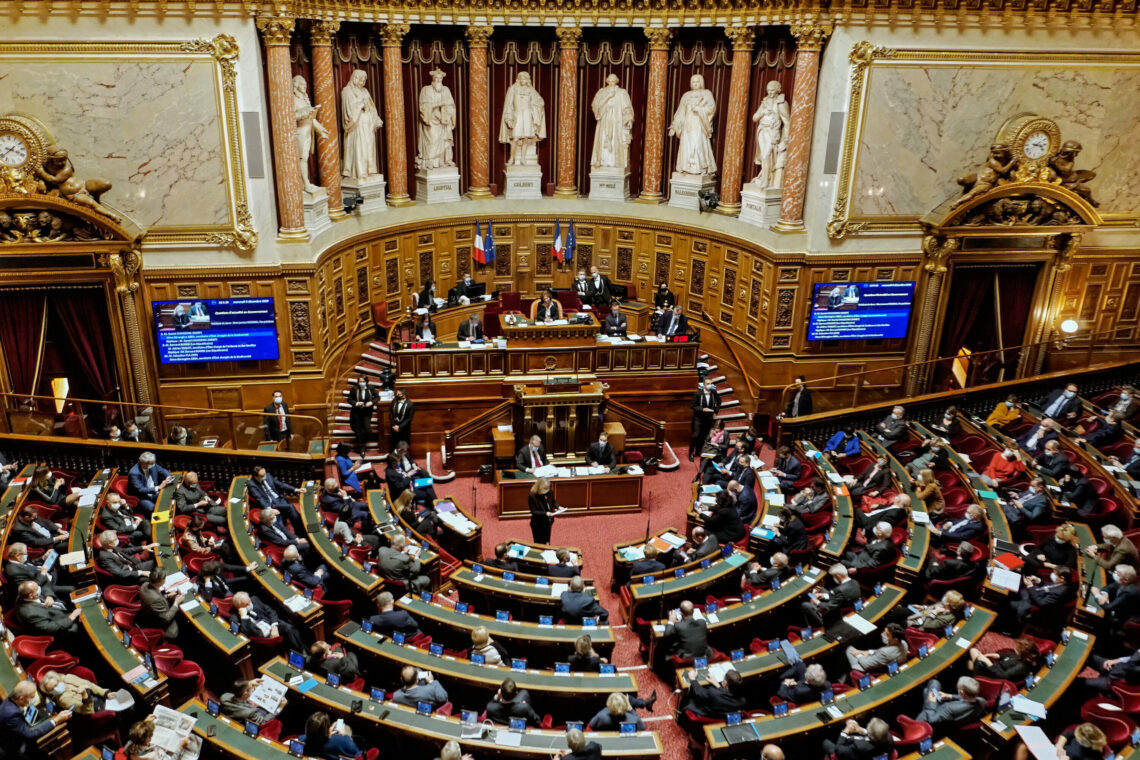Will France decentralize or recentralize?
In early 2020, France began considering government reforms meant to boost efficiency and reduce centralization. Delayed by the pandemic, the plan could face backlash from the left – and could easily be derailed in the event of unexpected developments related to Covid-19.

In a nutshell
- Covid-19 has worsened France's governance issues
- A new decentralization initiative could counteract the trend
- Public debate could shift toward a more productive discussion
This GIS 2021 Outlook series focuses on the opportunities that stem from the upheaval of the past year.
The Covid-19 crisis will not only leave France more indebted, but could also make it even more centralized. The 2020 resurrection of the Planning Commission shows the French reflex for state control over the economy, just when the country needs more dynamic entrepreneurialism. The billions of euros made available to counter the impact of the crisis could easily end up reinforcing collusion between bureaucrats and politicians on one side, and well-connected entrepreneurs on the other.
Some worry about the worsening state of democracy and civil rights in France. Of course, the Covid-19 pandemic justifies some limitations on freedom and expediency in the political decision-making processes. But the recent trend in which the parliament and judiciary are regularly debased is not a sustainable path. The French have gotten used to living under a state of emergency since the terrorist attacks in 2015, but now the exceptional measures seem here to stay.
In early 2020, the French government launched a project aiming to improve the country’s governance.
French President Emmanuel Macron has displayed a marked tendency toward centralization, in a way very much aligned with the long French tradition of a strong state. The upcoming elections should temper his enthusiasm. He also seems to have developed a taste for “participatory” democracy, expressed through various consultations with citizens. The most recent such example was a committee on the Covid-19 vaccine, with 35 citizens picked at random. This approach will not solve a centralized government’s lack of accountability. It will merely paper over the issue.
Yet there is a glimpse of hope for 2021. Mr. Macron has also opened the door to less centralism.
Hidden forces
Some emerging trends could lead to important reforms. In early 2020, the French government launched a project aiming to improve the country’s governance. The plan foresaw decentralization, “deconcentration” of state services and differentiation for local jurisdictions. (The latter point means these branches would have the possibility to “experiment” – a formidable feat in a unitary republic.) To these three “Ds,” a fourth was added, namely the “decomplexification” of relations between central powers and local governments.
Despite the decentralization laws of 1982 and increased powers devolved to local levels over the years, the country still seems to suffer from too much centralization. The yellow vest movement was partly rooted in this situation. It not only reclaimed more local public services but also governance better adapted to local needs. In July 2019, taking stock of the yellow vest crisis, Mr. Macron acknowledged the need for “new relations between the French central state and local governments.”
The French government – like many others – mismanaged the pandemic.
While the Covid-19 crisis led officials to put the project aside, it also increased the need for reflection. The French government – like many others – mismanaged the pandemic. It proved either too slow in reacting or too brutal in imposing unnecessary measures. It became clearer than ever that the large central state did not perform well. Worse, it prevented local powers or agencies – often in a better place to judge and act – to do their job.
In July, a working group in the French Senate produced a project with 50 propositions on how to advance the decentralization agenda. If it comes up for debate in 2021, it could lead to important government reforms in France. The basic idea of the initiative is to allow local governments to organize, regulate and spend more freely. The group tried to find a subtle balance between protecting the French tradition of a unitary country and the respect for local needs. It also steered clear of radically changing the administrative system so as to avoid scaring local officials tired of incessant reforms.

The first goal is more local autonomy in terms of organization. The second goal is to increase efficiency in public services and policies by using local solutions to local problems wherever possible. The third goal is to experiment with different institutional, regulatory or organizational solutions at the local level (but never in breach of the Republic’s principles). The fourth goal is to reinforce the parliament’s role in matters of overseeing local freedoms.
Some might see the project as modestly reformist, but one should not underestimate its potential to slowly shift the situation. The right to experimentation could be extended to include more issues. The initiative could also steer the public debate toward current obstacles to democratic governance: fiscal illusion, complex procedures for financing public spending, various entitlements and so forth. French people would become more familiar with the principles of a genuinely democratic government.
Scenarios
The government reforms in France will face plenty of challenges. Many, especially on the far left, criticize the trend toward what they see as a less unitary and more unequal country. Indeed, even if the project is a far cry from federalism with institutional competition, the “right to differentiation and experimentation” would naturally lead to unequal outcomes. (Whether “equality policies” actually bring meaningful equality is another debate.) There would likely be significant political opposition, including in trade unions, which are typically centralized in France.
Another potential hurdle is that policymakers could adulterate the project by trying to make it fit in the traditional French mold to please critics. There is already some talk of imposing any successful strategy obtained by one experimenting region or city to all others so that the whole process does not create too much inequality. As usual, the devil is in the details.
Moreover, while local leaders will welcome more freedom, they may also ask for compensation from the central government. They may want the autonomy, but try to avoid shouldering the responsibilities that come with it. If the final goal does not include much more fiscal freedom (both in spending and taxing) for local branches of government, it will hinder accountability, democratic governance and public finances. The habit of making costly decisions with other people’s money is hard to break. Any effort to achieve fully democratic governance, in the long run, should try to control this tendency at the start.
The last obstacle is that, given the pandemic and the looming 2022 elections, the legislative agenda is already clogged. The National Assembly has already postponed discussing the project several times. Mr. Macron is busy trying to get his pension reforms approved, and if there are new lockdowns, the plan could be put on hold.
As one senator feared, the main risk is that the project will ultimately amount to “much ado about nothing.” But it offers a real opportunity for the French to finally address, and solve, the latent conflict between a unitary republic and a pluralistic democracy.








